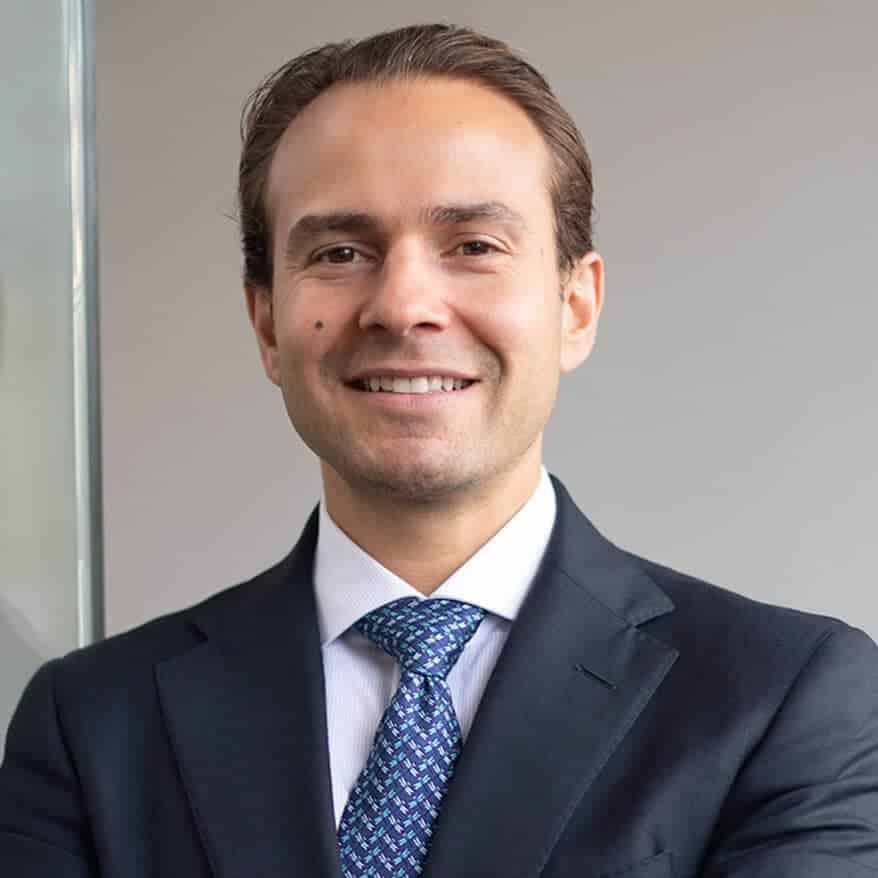Giving testimony at trial is one of the most stressful experiences an expert witness can endure—so proper preparation is vital. From seasoned experts with dozens of cases under their belt to novices who are taking the stand for the first time, the tips below from nationally recognized trial consultants will help you get the most out of your expert when the time comes to testify.
Give The Expert Enough Time to Prepare
Elaine Lewis, CEO & Chief Trainer – Courtroom Communications
“One of the most important things is to allow enough time for preparation and practice. It is important that the witness understands the theory of the case and the theory of the opponent’s case. It’s important that the expert has enough time to read all relevant documents ahead of time. Too often I have seen cases where an expert was not even familiar with his/her expert report. It had been written many months previously and the expert was no longer conversant with the details. Many attorneys are operating in crisis mode as trial nears and they don’t get around to trial preparation of the expert witness until the last minute. This can be a disaster in an otherwise good case.”
The Expert Needs to Know the Facts of The Case
Jason Barnes, Partner – The Focal Point
“I will give two factors I find important: intellectual independence and absolute mastery of the facts. Independence is usually indicated by an even disposition and helpfulness on direct as well as cross examination. Mastery of the facts may seem like an obvious point, but I’ve seen too many examples of an expert unsure on some relatively obscure point made to look foolish by opposing counsel. The expert should know at least as much as the lawyer – that’s the job of an expert. Not knowing the facts allows an opponent to “get in the head” of an expert. Intellectual independence can be demonstrated by experts who easily concede facts that do not support the party that hired them. Experts who fight on cross examination about the facts—not about an opinion where an expert should politely and calmly stand firm—reveal their own bias at the expense of credibility.”
The more relatable the testimony, the greater the chance of it being positively received.
Identify Experts Within the Jury
Kathy Kellermann, M.A., M.S., Ph.D., Founder & President – ComCon Communications Consulting
“Specialized knowledge of jurors affects their perceptions of experts. In other words, expertise on the part of jurors in the topic of the trial can be problematic. For example, many times, doctors, nurses and other medical personnel will have expertise in issues involved in med mal cases, and they will often not be able to stop themselves from substituting their knowledge for expert testimony, arguing against expert testimony (ie, disagreeing with it), and/or serving as a resident “expert” for other jurors during deliberations. Jury selection is the place to address these matters.”
Avoid Jury Biases
Carole Gold, Esq., Attorney & Trial Consultant – The Jury Whisperer
“Common biases are that doctors are arrogant; psychologists are guns for hire; tech experts are geeks or nerds. So, first, if your expert hasn’t made a career out of testifying as an expert, stress that. This expert isn’t a gun for hire. Make certain your expert, having used technical language or terms of art, then has the opportunity, through your questioning, to put it in layman’s terms…make it relatable and understandable to the juror. Make it real, not just theoretical or abstract. For example, computer speak by engineers or tech experts can be mind-numbing but everyone uses a computer (or likely has at some point) so have them bring it home with examples such as “Well, what I’ve described is when you open a website and suddenly there is a pop-up ad for something you’d been shopping for online earlier in the day and you wonder how that very item appeared…well, what I just explained is how and why it appeared.” The more relatable the testimony, the greater the chance of it being positively received.”
Show That They Are Still Active and Learning
Charli Morris, M.A. – Legal Communications Consulting
“If I had to name one thing that makes an expert stand out at trial, it would be the real-time experience he or she is still acquiring in the field. Someone who is long-since retired and no longer practicing may have the advantage of age, wisdom, and experience. But anyone who comes across as having stopped learning years ago will make a lesser impression than someone who stays actively engaged in his or her profession.”
Speak Slowly, Loudly, and Smile
Gillian Drake, Founder & President – On Trial Associates, Inc.
“A famous trial attorney told me once that after he won a months-long trial on complex issues about turbines in nuclear energy plants, he polled the jury. The foreperson told him that they became to depend on him for their information the most and eventually won them over because of three things: He talked slowly, he talked loudly enough, and he smiled. These attributes seem trite, but they go to the heart of the matter.”
- Slow: One talks slowly because one is engaged with the listener intently and watches to see if one’s thoughts “land”.
- Loud: That actually means that the speaker’s energy level is high and fully engaged and she is using every part of oneself to communicate which has the effect of seeming loud and clear.
- Smile: When one loves what one is talking about—that is different than loving to hear yourself speak—it makes it much easier to listen to and actually easier understand what is being said and talked about.
Use the Most Effective Communication Methods
Sharon Lundgren, Ph.D., Trial Consultant & Owner – Lundgren Trial Consulting
“The more complicated the issues are to explain or provide education on, the greater the need for analogies, examples, graphics, and animations, and finding the simplest and fastest way to explain the technology/issue. A lot of eye contact and watching the jurors for understanding is also a good idea – are there blank stares, or are jurors nodding? Are they avoiding eye contact? If possible, ask for permission to leave the witness box to go to an overhead chart and draw a diagram, or a model and describe it. Moving about re-engages jurors, and they tend to appreciate seeing an expert in teaching mode.”
Don’t Lose Sight of the Lay Perspective
Dr. Philip K. Anthony, CEO – DecisionQuest
“Many times, even experts are concerned about their testimony. So one role of a trial consultant is to assist the expert to be able to see the case from “the shoes of the juror.” What does It feel like to be the juror? What are they hoping to learn from the testimony? Oftentimes, experts lose sight of the layperson’s perspective, because during the discovery and report writing phase of trial preparation, they become highly focused on the “academic” nature of the debate between the attorneys on each side and the battle between the experts. The expert many times loses sight of the need to return to simple themes and issues for presentation to the jury.”
Good experts aren’t just a voice for their attorney, but they also need to have an open-minded approach to working with the team in order to deliver their testimony in ways that are sensitive to the strategic needs of the case.
Work Through The Issues Together
Katherine James, Founding Director – ACT of COMMUNICATION
“Inexperienced experts need much more rehearsal than attorneys tend to spend with them. They need lots of dry runs – they are brilliant, but they’ve never done this before and no one learns a doing activity like testifying through reading about it or listening to a lecture. Newer experts are often testing the water – seeing if they could make part of their career serving as an expert witness. That’s great as long as the people who get a hold of them and use them first don’t completely screw this up for them. Every time they blow it, whether little or big, it becomes a part of a record that someone, somewhere is going to see down the line when they want to work on another case. And what about when the first attorney who uses them wants to use them again? Can’t be done if they aren’t worked with long and properly.”
Avoid Experts Who Are Too Proud to Change
Ken Broda-Bahm, Ph.D. Senior Litigation Consultant – Persuasion Strategies
“New experts, and even very experienced ones, aren’t often naturally effective communicators. All of that extends beyond their expertise and needs to be learned and practiced. But experts also don’t always know why or how to work with attorneys and consultants. It can often mean getting past a point of pride: It doesn’t compromise your opinion to find ways of expressing it more effectively. Good experts aren’t just a voice for their attorney, but they also need to have an open-minded approach to working with the team in order to deliver their testimony in ways that are sensitive to the strategic needs of the case.”
Make Sure Their Experience Fits The Broader Case Story
Eric Oliver, Trial Consultant – MetaSystem
“Avoid an expert who is only interested in telling their story about their corner of the overall case, and is not ready to work with you to integrate their background, training, and expertise into the larger case story theme. These experts are usually most easily identified by their abject refusal to use any demonstratives you have built up for the delivery of the entire case story during their pet portion of the presentation.”
Avoid Fights with Opposing Counsel
Jeri Kagel, J.D., M.Ed., Trial Consultant – Trial Synergy, LLC
“Inexperienced experts get into power struggles on, most often, cross examination with opposing counsel. Experts who are feeling personally attacked, or that have had their testimony undermined, begin focusing on the attorney questioning them instead of the jurors—the expert’s true audience. These experts get testy, become arrogant, answer questions with questions, or otherwise try to outdo the questioning attorney. This never bodes well for the expert as the jurors watching begin rooting for the attorney in the power struggle. There are many effective tools and techniques to teach witnesses so they can sidestep attorney confrontations and suggestions of wrongdoing or being ill-equipped to answer questions, and avoid common cross-examination pitfalls all while continuing to effectively teach jurors the subject matter of their testimony.”
If you use the tips listed above, you can make sure that your expert does nothing but help your case on the stand.
Expert Witness Specialty Index
Connect with the right expert before your next trial date.
Explore a sample of our expert network.

E-579351
Mechanical Equipment and System Failure & Material Failure Analysis Expert Witness | Louisiana

E-681178
Data Science and Artificial Intelligence Expert Witness | Texas

E-674660
Construction Management and Engineering Expert Witness | New Jersey

E-681750
Construction Management, Delay, and Disruption Expert Witness | Pennsylvania

E-694813
Computer Engineering Expert Witness | Georgia

E-705117




